The End of the 00s: Down Under the George Washington Bridge Overpass, by Matthew Gallaway
by The End of the 00s
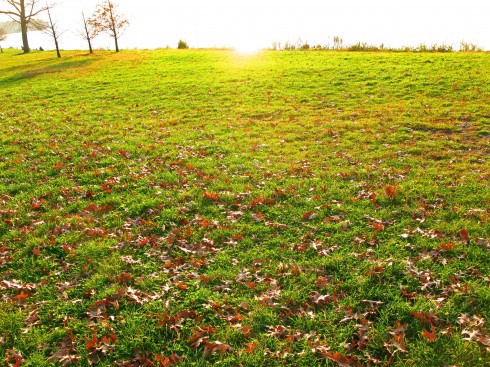
It was one of those late November days for which the decade will perhaps be remembered, a day that should have been cold but was not. Stephen and I decided to take a walk to the Hudson River, and though the air felt good -the way it does in late spring, when you put away your jacket for the season -I could not shake a sense that there was something unhealthy about it, as if I had mistakenly wandered onto the grounds of a hospital.
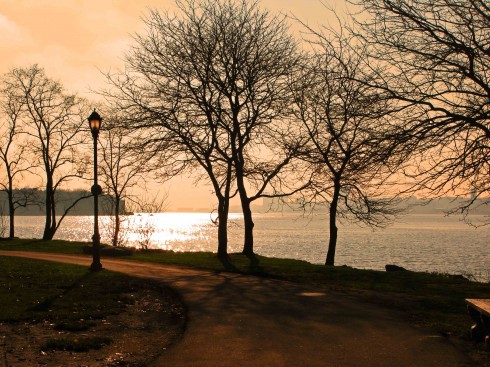
The early-afternoon sun, low in the late-autumn sky, reflected off the water and infused the landscape with an oversaturated, celestial light, which-because we were alone-added to the quiet, surreal quality of the scene. We decided to head north, safely upwind from the sewage treatment plant in Harlem, and as we turned away from the hazy outline of the buildings downtown, it felt as if we were the only two people alive, leaving the city for the last time.
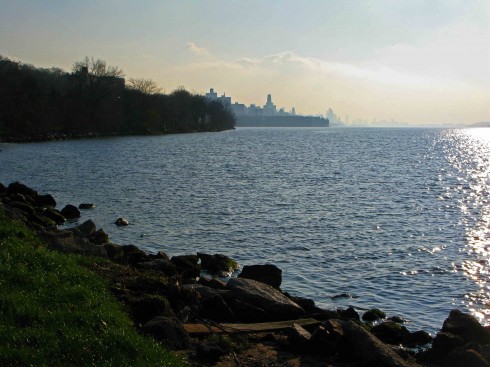
I paused to examine a patch of white clover (Trifolium repens), some of which was in bloom.
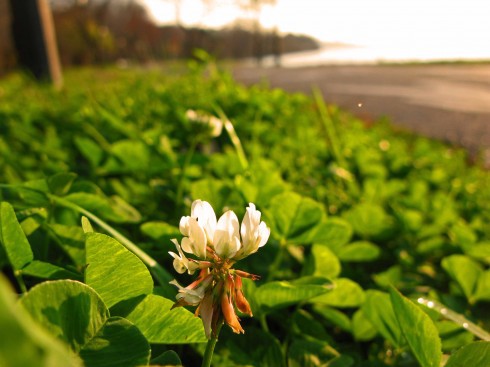
‘There’s so much I would like to forget about this decade,’ I said to Stephen after we continued, and then passed the bloated corpse of an unemployed man who had been killed by a death squad after testing positive for HIV and left to rot in the bushes.
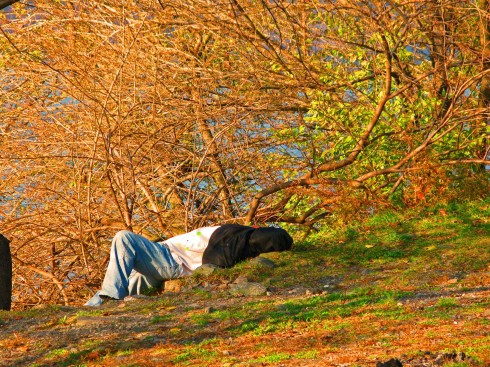
‘No, that’s not until 2013,’ Stephen corrected me, after ____ is elected President. ‘But let’s not talk about politics,’ he quickly added. I nodded; it seemed futile to rehash the wars, the income disparity, the stagnation of civil rights, the environmental degradation, the religious fundamentalism, the insidious promulgation of stereotypes by the advertising-entertainment-media complex, the lack of universal health care and the increased corruption at every level of government (to name just a few items) that marked the previous decade and-with the exception of a few small plateaus in the downward trajectory-the three before that, i.e., my entire life.
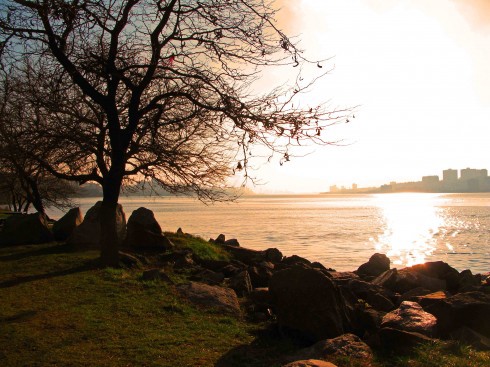
I remembered the first time Stephen brought me to this stretch of the Hudson River-and shortly after that, to live with him in Washington Heights-almost exactly ten years before this present walk. Having returned here often enough so that I associated this spot with the passing years, I knew that my appreciation for its beauty-or more to the point, the artifice that is ‘nature’ in the metropolis-was an unexpected consequence (or benefit) of my decision to ‘come out’ as a non-heterosexual, this too in conjunction with meeting Stephen. Like a person whose full spectrum of sight is miraculously restored with a knock on the head-or an arrow through the heart-I began to perceive my surroundings in a manner that felt less prescribed than inspired, as if I were responsible for creating the world in which I lived, and not the other way around.
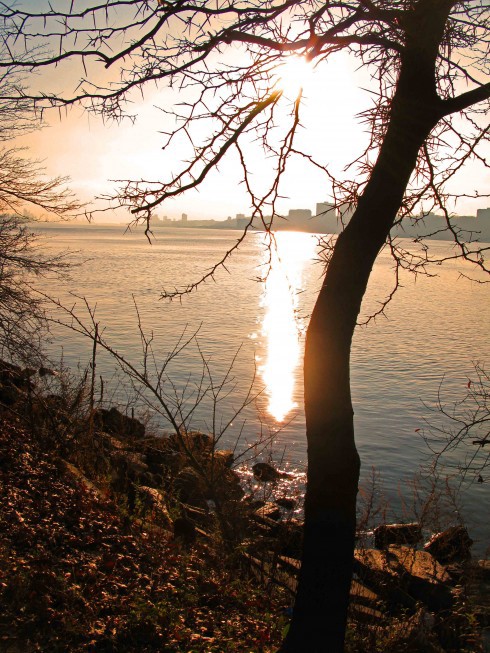
If this process was one of assessment, both of those around me and my own character-the qualities and weaknesses I had long tried to dismiss or ignore as I devoted myself to hiding the biggest ‘flaw’ of all-it had also led to my withdrawal (to the extent possible) from those parts of society to which I had grown accustomed but could no longer endure (or that could no longer endure me). Although I could not have explained it in such terms at the beginning of the decade, to move to Washington Heights-a neighborhood in which I was a ‘minority’ in almost any sense of the word-had transformed me into an ‘outsider’ or foreigner, and brought into relief the kind of fear and hatred that so often defines relations between those who hold power and those who do not.
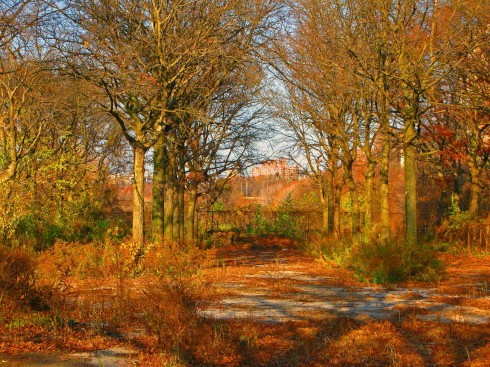
As we walked through the decrepit ruins of the esplanade, I dismissed a tendency to romanticize the past, along with any inclination to see it restored. ‘Let’s not talk about real estate, either,’ Stephen cautioned me, and again I nodded, understanding that the fate of the city, much less the waves of capital and reconstruction that drive its relentless mutation in the modern era, is almost beyond the comprehension, and certainly the control, of any person.
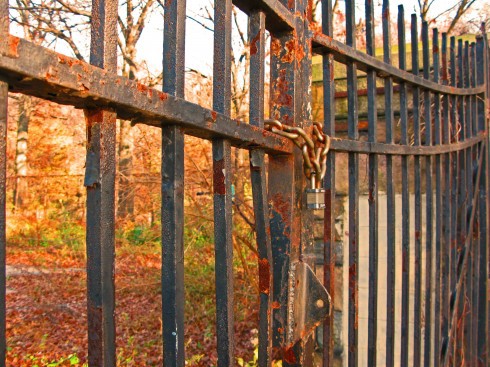
We approached a small grove of evergreens, and I thought about a few things of importance (speaking subjectively, of course) I had learned in the past decade, such as how to tell the difference (or, well, most of the time) between a spruce and a pine and a deciduous conifer such as the dawn redwood, several of which could also be found nearby.
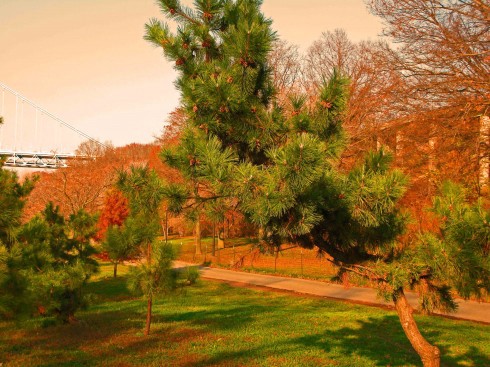
We stopped to admire an impressive Eastern White Oak (Quercus alba) that held a few remaining leaves.
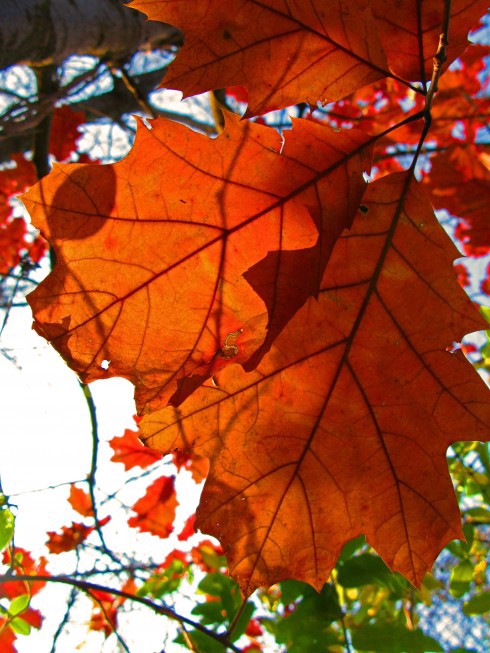
A crabapple tree (part of the Rosacea family) laden with fruit seemed like a promising sign for any birds who planned to remain north for the winter.
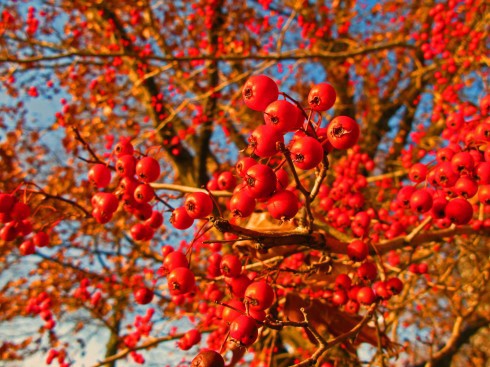
As did the elderberry bushes, which grew vigorously in the underbrush next to the train tracks.
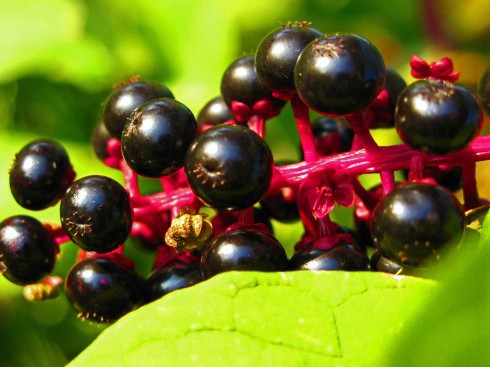
A depression in the ground was overflowing with acorns, which made me wonder if the squirrels near our apartment-the ones who battled the traffic and rats-knew about this bounty next to the river. So much of life, it seemed, was rooted in contingency, i.e., the luck (or bad luck) of where and when we happen to be born and the infinite circumstances-most completely beyond our control-that may or may not unfold as we muddle along during the time allotted to us. If we’re fortunate, we may be given the opportunity to arrange the events of our past to make them seem as if they were ‘meant to happen,’ but this is really a dramatic facade that allows us to avoid thinking about the more obvious truth, which is that we are all susceptible to any of an infinite number of unforeseen causes and effects.
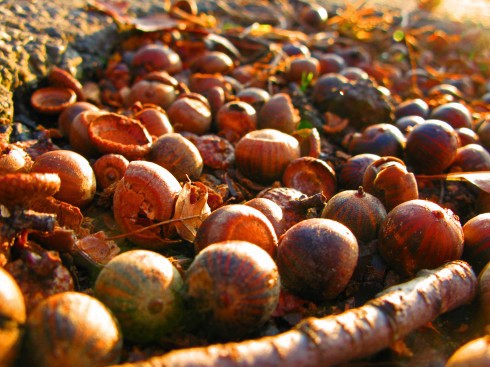
Back on the water, a group of mallards paddled by, and I wondered if they lived on the river year-round, or if like us they were just passing through.
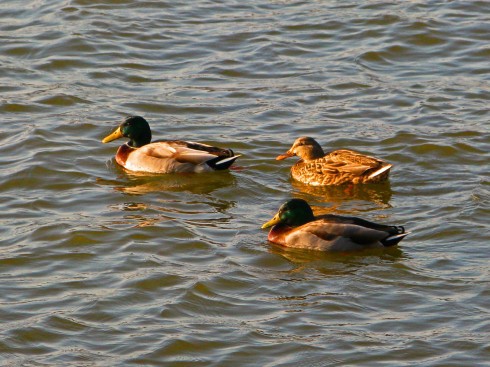
The shoreline was littered with debris, some of which could have been fragments from Atlantis.
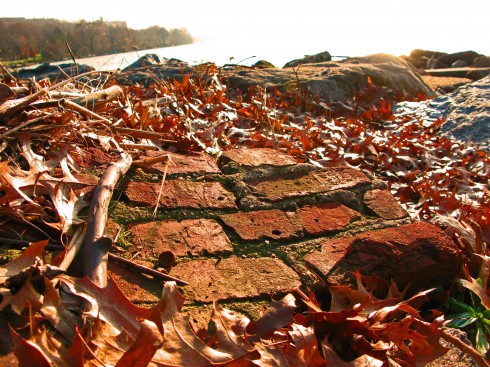
And some of which was less interesting.
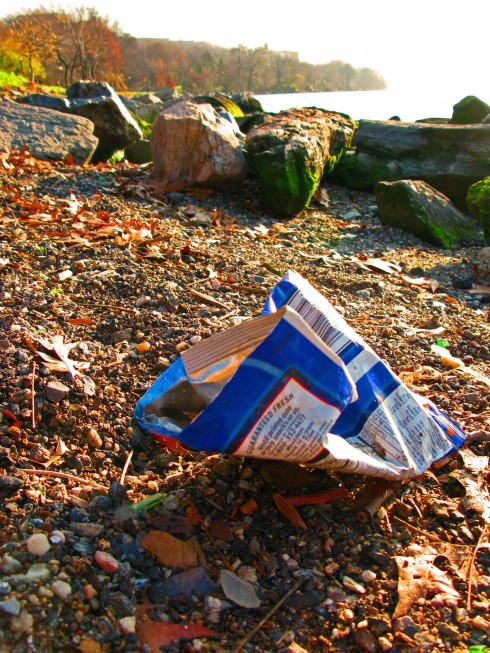
As we approached the George Washington Bridge, I contrasted this marvel of aesthetics and engineering with the detritus in its shadow, and was struck by the dissonance between the product and the byproduct of the city, along with the futility of thinking-as I had most certainly done when I was younger-that anything approaching a state of perfection or ‘harmony’ could ever be achieved.
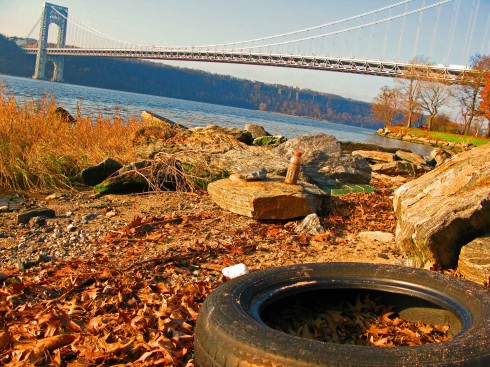
A wall erected in the wake of 9/11 prevented us from getting too close to the towers.
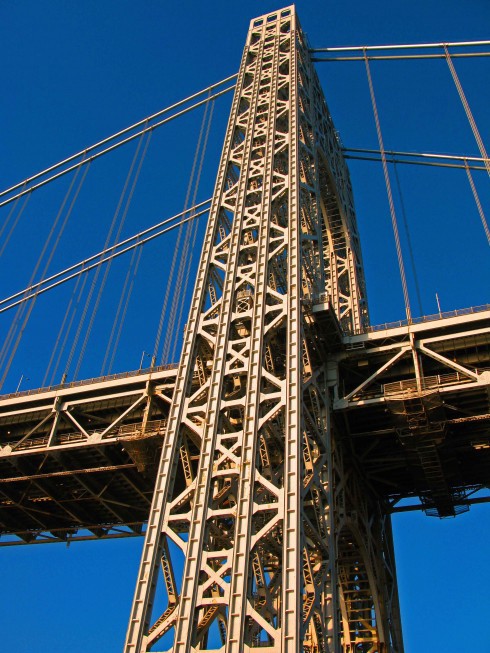
We walked around to the other side, and were amazed to find sunflowers in bloom behind a security fence.
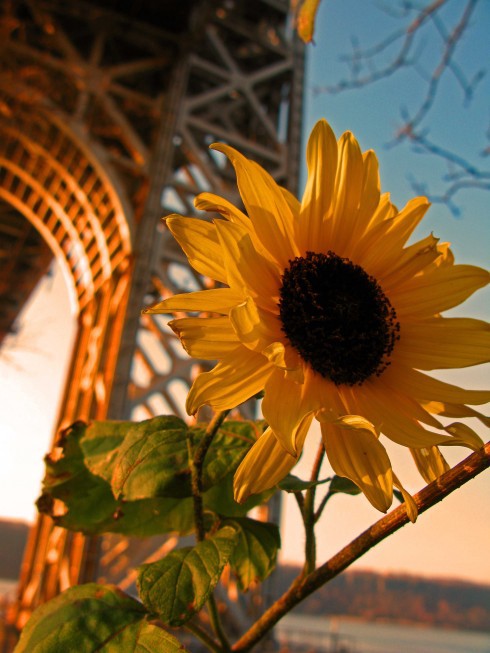
In the distance we could see the lighthouse, which made me feel oddly hopeful, although about exactly what I could not have said.
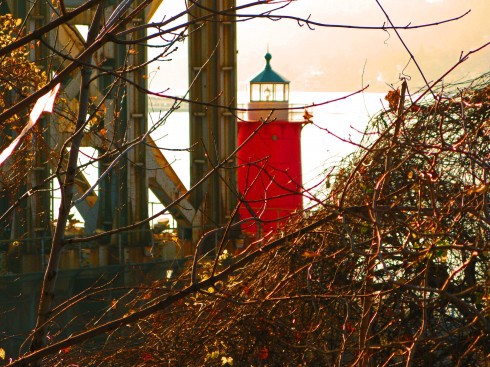
I knew that once, I was lost in the weeds.
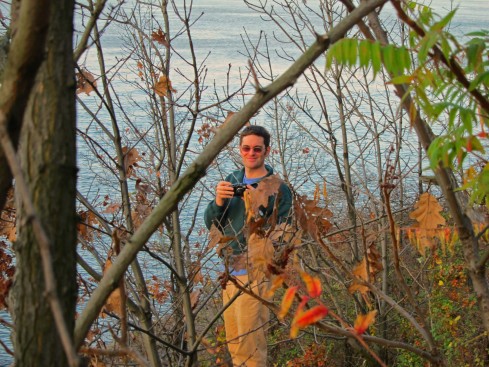
And yet here in the weeds I had also been found.
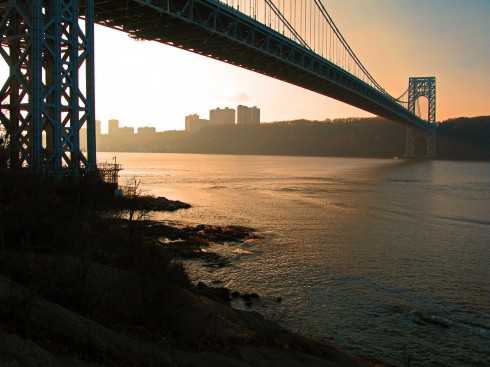
Matthew Gallaway is a writer who lives in Washington Heights. His first novel, ‘The Metropolis Song,’ will be published in 2010 by Crown.
